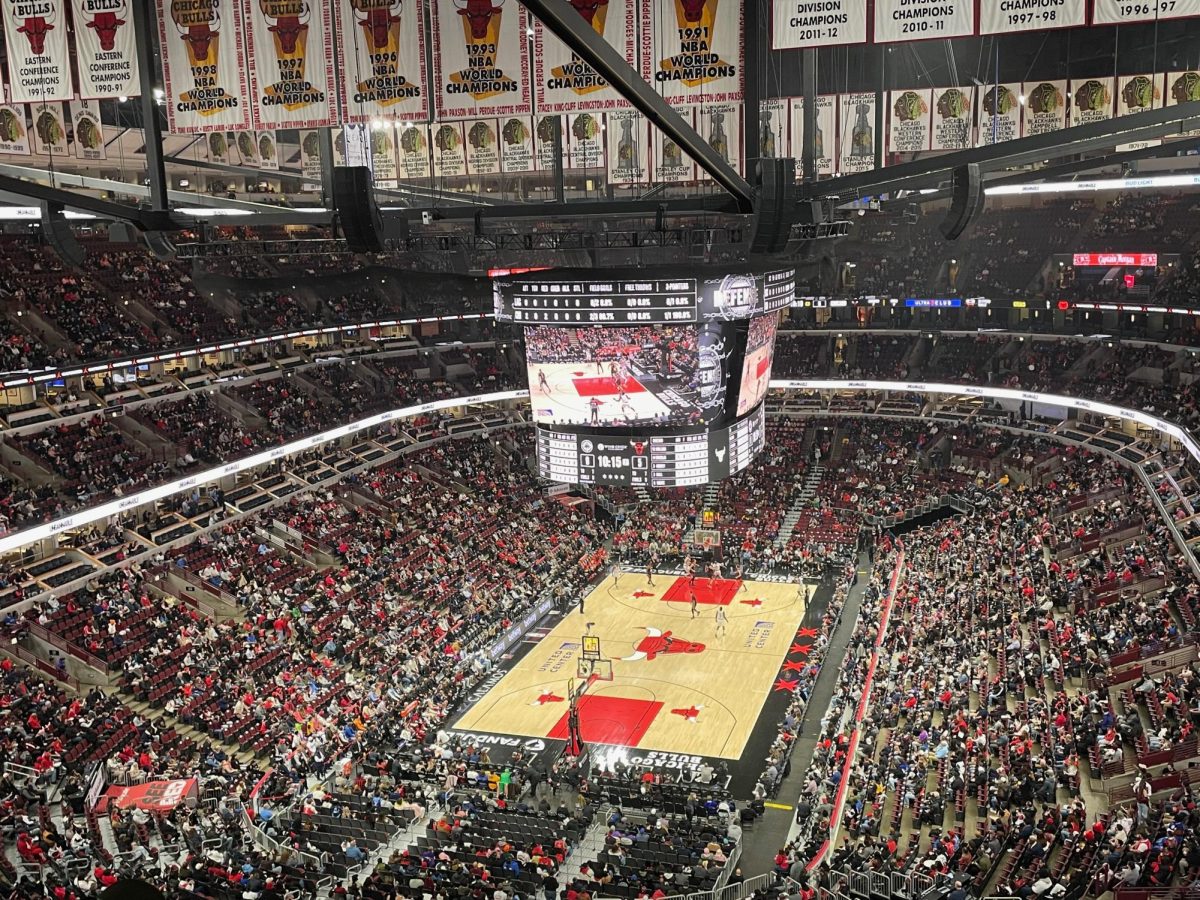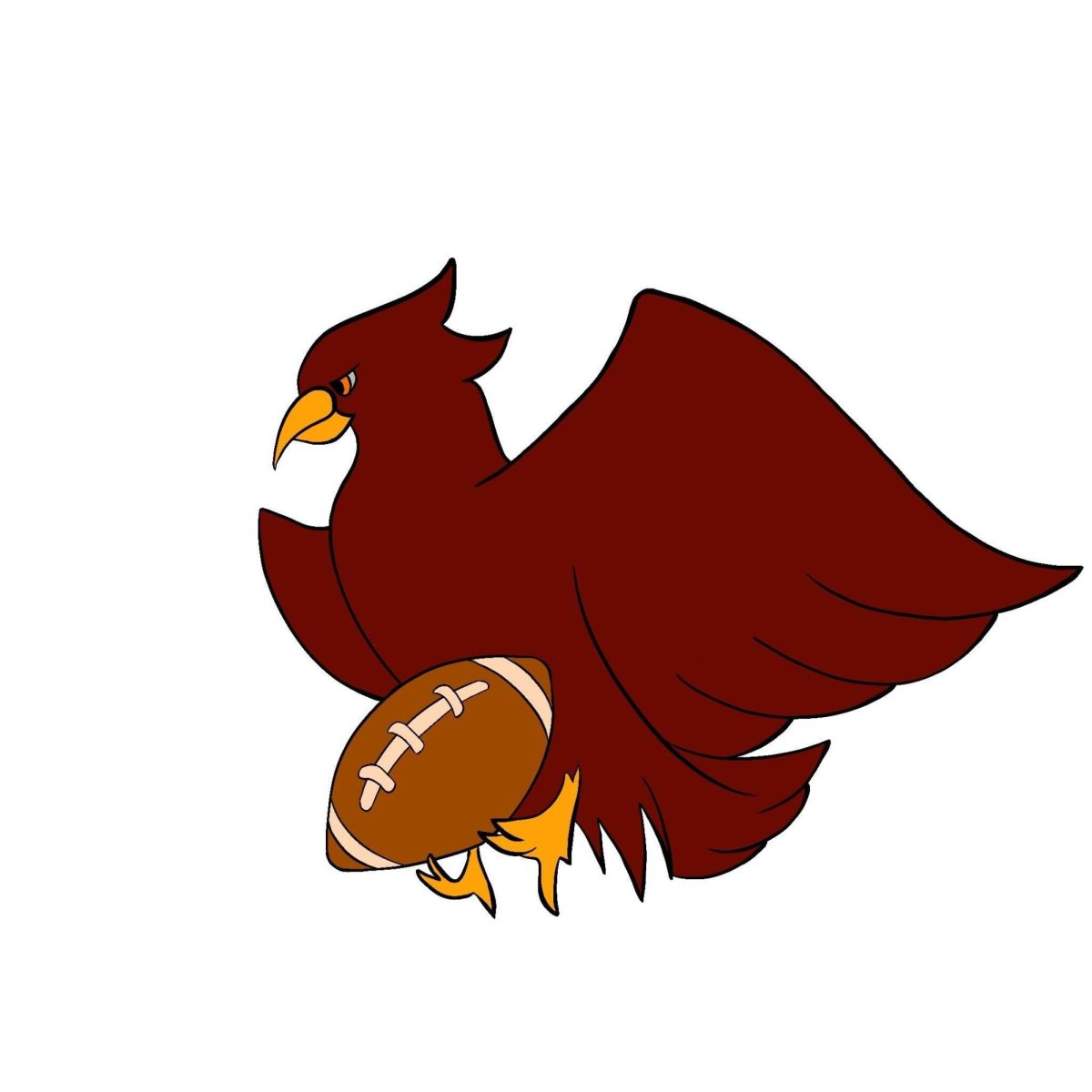Already riling up readers, the Ratner Rats dip into the mailbag this week. Don’t forget that you can contribute your own comments on the Maroon Sports Report at maroon.uchicago.edu/wordpress:
• Reading the recent diagnosis of what is ailing Maroons women’s basketball brought a smirk to my rounded face. On one hand, there was a honed talent shown for stating the obvious. On the other was a display of complete ignorance of the conference, coaching, playing the game, and the game itself. Wake up. Your team has the best start in school history in one of the toughest Division III conferences in the nation. The Maroons are 13-3.
The Maroons have their very first national ranking. Now you second guess and criticize the team. Methinks the psuedo-intellectual wannabe elite would benefit from learning about the game before offering up clueless insights.
Joe: Dear Anonymous,
Thanks for your input! Always nice to hear from our readers. I particularly appreciated that someone out there has recognized our honed talent for stating the obvious. We’ve put a lot of work into that, and we’re thrilled to see it’s showing results.
On the other hand, I must admit that I’m a little concerned that we’re not showing that same clarity in our beat articles. I could have sworn that in the editing process I’ve seen line after line about how this team wants to win a league title and make a run in the NCAA tournament. I’m also fairly sure that we’ve printed quite a few team quotes about how the level of play has been unacceptable for the talent level. And I’m positive we were talking as we wrote last week’s roundtable about how ominous it was that this team was beaten at its own game in back-to-back showdowns.
My complete ignorance of the conference, coaching, playing the game, and the game itself aside, allow me to offer you an insight: In a 14-game league schedule in any sport, getting swept at home is a serious problem, and it generally won’t motivate sports writers to talk about how wonderful the season has been. Particularly when the coaches and players are making it pretty clear that they’re horrified by the concept.
I apologize for not fully illustrating these points in the course of our column. We’ll try harder.
Sean: Dear Anonymous,
I have no idea how much you’ve been able to see this team play because you gave no indication of your relation to the program, but I suspect that you haven’t seen nearly enough to understand that this team is missing its own expectations, not just ours. Last year, we could chalk up these lapses to a tough conference and a relatively inexperienced team picking up a new offensive scheme, but this year the Maroons know they can challenge for the top if they play up to their potential. We may get four tournament teams coming out of the UAA this year, but right now the Maroons are staring straight up at four that have already beaten them. Now they have to beat three of those teams on the road as well as the tough-anywhere Wash U Bears.
I don’t claim to know basketball that well—in fact it is probably the sport I understand the least—but I do trust the opinions of the players and coaches, who have focused on three things lately: 1) The offense has become predictable with the passing far too slow, 2) the post players need to establish themselves as offensive forces inside, and 3) the three-quarters/full-court press frustrates our guards too easily.
A lot of this explains the Maroons’ high turnover totals all year, and that sloppy play reared its ugly head again this week. Carnegie had 18 steals against Chicago; Rochester had 14. The team is on pace to create 59 more turnovers this season than all of last year with essentially the same personnel. It’s not that they’re losing but rather how they’re losing that troubles me.
The Maroons want to be an elite team, not a good, record-breaking team. Don’t sell them short.
Omar: Dear Anonymous,
I think that the Maroons are definitely underperforming when compared to their stated preseason goals and their latent talent. This is most obvious when you watch them play and see how, at various points in the game, things click together for about 3 to 4 minutes: The passing becomes slick, the shots come from easy positions, and the post play becomes aggressive.
Why does this not happen more often? I don’t know, but I believe that it isn’t only because the other team is counteracting them. Sometimes, I wish that the Maroons would just get completely thrashed just so that I could say they were beaten by a better team. I have yet to see an opponent that the Maroons could not have a decent chance at beating. They can win their remaining conference games and I sincerely hope that they do.
• How did the men turn their season around?
Joe: For the first time this weekend, we really saw just how deep these Maroons can go. We’ve seen great individual performances from all five starters and the bench players this season, but too often if it seemed as if they were content to rely on one or two of their teammates to carry the load. With their season in jeopardy, everyone seemed to step up at once, much to the chagrin of the Tartans and Yellowjackets.
Sean: Precisely. Last week we called on the men to build off each other and play solid team basketball, and they answered with the epitome of teamwork and, as a result, a weekend sweep. They overachieved but in a positive sense—their sum-is-greater-than-the-parts effort showed that they can beat anybody in the conference. Every couple minutes, when Carnegie started to adjust to the Maroons’ latest hot hand, the men flashed another weapon from their back pockets and never seemed to doubt that they could pull this one out.
Joe: In particular, third-year forward Jason Vismantas seemed to exemplify the all-for-one, “we’re not losing this game” approach that permeated the roster, playing two games as well as any in his Chicago career. His numbers (10 PPG, 3 RPG, 4 steals against Carnegie) only tell part of the story. They don’t show his production under the Maroons’ own basket, most notably a forceful, full-body stop against Tartans star Nate Maurer at the end of regulation that may have saved the game. Nor do they demonstrate the vast difference in his ball-handling skills, which were remarkably solid for the first time this year.
Sean: Let’s also give a shout out to second-year small forward Nate Hainje, who is a quiet but consistently solid player for the Maroons. He joined Vismantas as the Maroons’ top defensive player this past weekend, grabbing seven steals in two games and just showing a general nose for the ball. His passing game is only challenged by the team’s point guard, third-year Brandon Woodhead, who made Omar look really good this weekend
Omar: Woodhead ensured that all those who attended the Tartans’ game lost their voices, and I was no exception. He showed that he was the complete player over both games, flashing judgment, guile, technique, poise, and, most importantly, leadership. I propose that “Give it to Wood-head” become an official chant at Ratner.
Sean: He should have been UAA Athlete of the Week no doubt. Without his layup and three in the last 22 seconds of Friday’s overtime, the Maroons are three games back of Carnegie and out of the UAA race.
Omar: Aside from our magical point guard, I’m enjoying seeing fourth-year power forward Clay Carmody get back to his best after illness. With each passing minute, his authoritative rebounds increase in frequency and his luscious fade-away jumpers make a welcome return. He will be key to the Maroons’ assault on the UAA.
Sean: If Carmody can replicate his 2005 conference season down this late stretch, the Maroons will be tough. His touch and toughness are phenomenal near the basket. It starts with this weekend’s rematches against Rochester and Carnegie over in the Appalachians, and the Maroons will do very well if they maintain this must-win mentality. They’re looking for game-by-game perfection on this second tour through the UAA, and though they may not need to be perfect, they do need to be pretty close.
• This year the NCAA decided to expand its tournament fields, dropping the ratio of playoff spots to total teams from 1 per 8 to 1 per 6.5. A good move?
Sean: In professional sports, I always support smaller playoff pools because the regular seasons are long enough and comparable enough for teams to prove that they’ve earned a postseason berth. In college, however, we regularly see the troubles with comparing teams from different conferences, especially over 20 or so games. This was absolutely a great move by the NCAA, as the previous ratio that had about three or four at-large bids was ridiculously tight for teams in good conferences.
Joe: Larger playoff fields always carry the risk of diluting the importance of the regular season. In this particular case, however, I can make an exception on the grounds that the old system made the margins too thin. One game shouldn’t make the difference between a legitimate national title contender making the postseason or not, and that’s what it can come down to with so few at-large bids available. In the past, teams with records of 23–5 have been left home in March. It’s a shame that this change took so long to make.
Sean: It’ll be interesting to see how this expanded pool plays out for the women’s basketball UAA. It was absolutely ridiculous that last year only the conference champion Bears made the playoffs. Five teams—Wash U, Brandeis, NYU, Rochester, and Chicago—have been ranked this season, and the 13 extra bids should mean at least two more make it this year. Three is possible as well, and this is where women’s basketball can see the threshold they need to cross in the second half of its season.
Joe: On the men’s side, the extra bids are already helping several squads breathe easier. The level of parity in this league can’t be harped on enough. At least six UAA squads did well enough in non-conference play to merit an at-large bid with a third-place finish. Whereas in previous years, all the opportunities these teams get to beat up on each other may well have kept everyone except the champion out of the tourney, this winter one loss on your home court may not be a killing blow. The Maroons themselves might yet take advantage of this fact with a big run to finish off the season.
Omar: I’m going to be far less sophisticated and far more representative of the average Maroons fan when I make the following appraisal: The playoffs should be expanded until the Maroons qualify. Thereafter, I don’t care, unless it means bumping Wash U out. Simple, eh?







